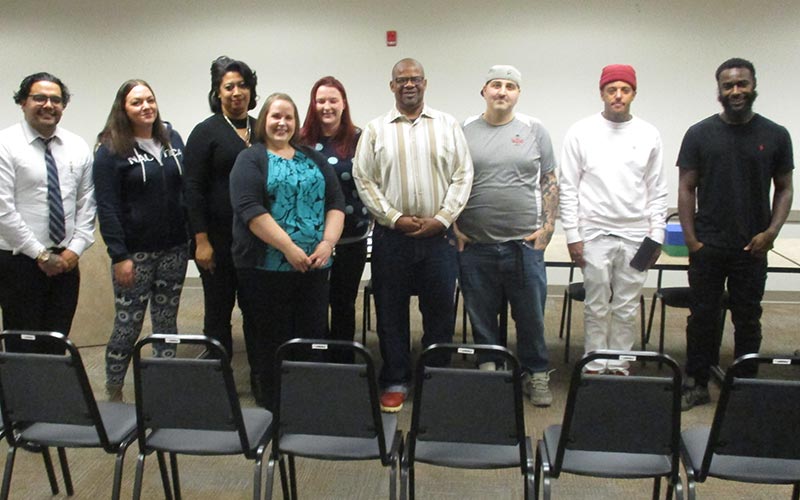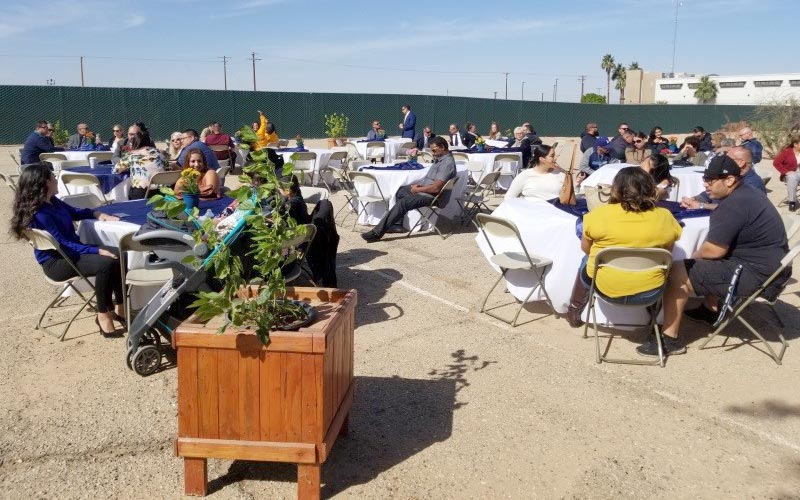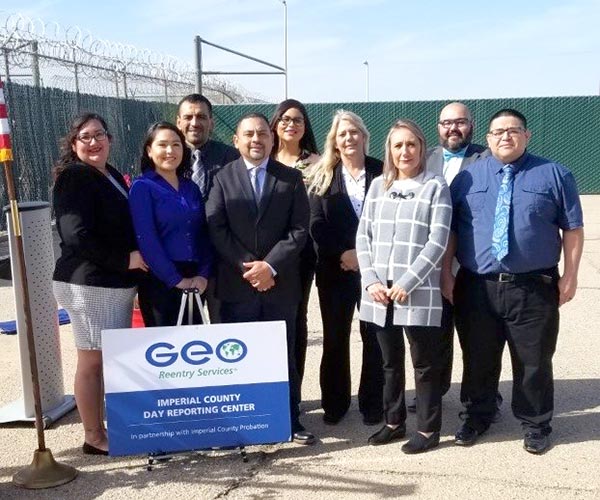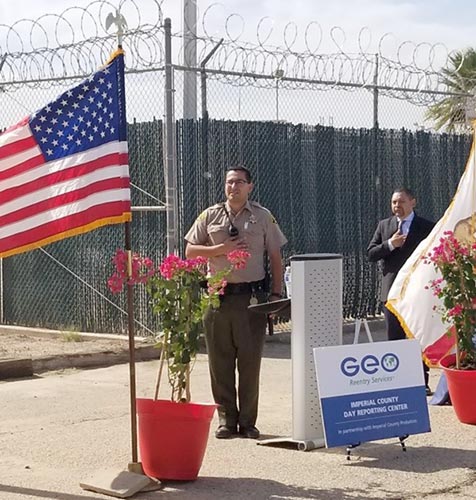At the heart of GEO Reentry programs are cognitive skills building practices that focus on treatment issues in a systematic, progressive fashion. These issues include confronting beliefs, attitudes and behaviors; assessing relationships; reinforcing positive behavior and identity formation; enhancing self-concept; decreasing frustration levels; and developing higher stages of moral reasoning.
Participants receive evidence-based cognitive behavioral treatment designed to change their criminal thinking, as well as substance abuse treatment and training to help them manage their addictions and remain sober. To graduate from GEO Reentry programs, participants must regularly report to the center, complete prescribed groups and classes, and remain drug free.
For many of the participants at GEO Reentry’s non-residential day reporting programs, the ultimate in bringing all of these principles together happens when individuals complete the program and participate in a graduation event, also known as a transition celebration. Anywhere from half a dozen program participants typically attend these bi-annual events hosted by local reentry offices. Officials from the community, probation or parole department, judiciary, and most importantly, family members and friends, participate in these positive events to celebrate a major milestone for participants. These graduations can be hosted at various venues to separate the event from the everyday program, including at a courthouse or public facility, even restaurants.
This fall, many transition celebrations have been or will be hosted nationwide, including in Fresno, Antelope Valley, Stockton, Imperial County, Atlantic City, Ventana County, Harrisburg, Merced, Napa, Lancaster, Baton Rouge, Luzerne, Covington, Neptune, Perth Amboy and Monroe.
Most program graduates are employed upon program completion or are enrolled in vocational or educational programs. At a recent transition for 41 graduates at the Imperial County Day Reporting Center, 65% of graduates had jobs and most of the rest were enrolled in community college or other training.
Because completing a rigorous GEO Reentry program is an accomplishment, being publicly recognized and often asked to speak about their experience in front of peers and others, elevates the accomplish and reinforces the belief that the community is behind their continued success.




